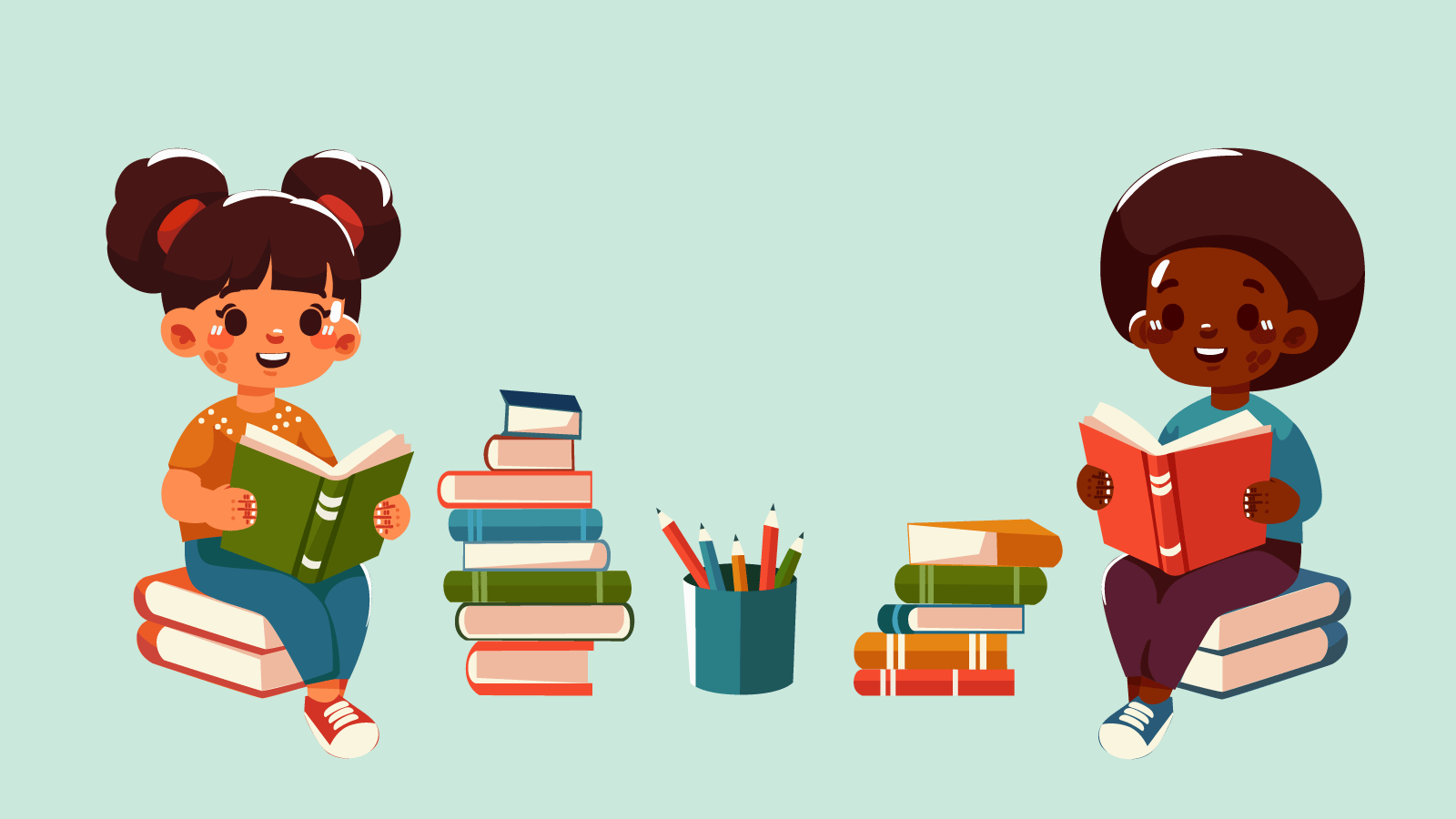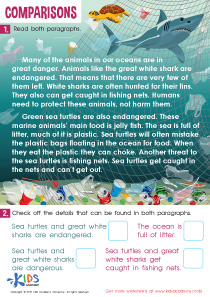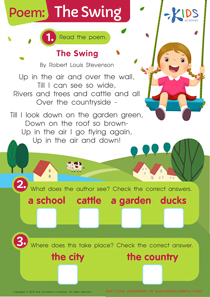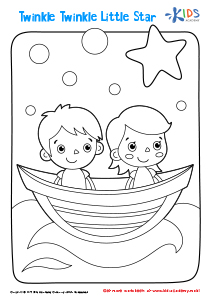Vocabulary enhancement Normal Grade 3 Reading Worksheets
28 filtered results
-
From - To
Enhance your child's vocabulary with our engaging Grade 3 Reading Worksheets! Specifically designed for third graders, these worksheets provide interactive activities that make learning fun. Students will explore new words, understand their meanings, and learn how to use them in context, thereby improving their reading comprehension skills. Our varied exercises encourage critical thinking and creativity, keeping young learners motivated. Perfect for classroom or at-home learning, these worksheets help bolster essential vocabulary skills crucial for academic success. Download now and watch your third grader flourish as they expand their language knowledge and gain confidence in their reading abilities!
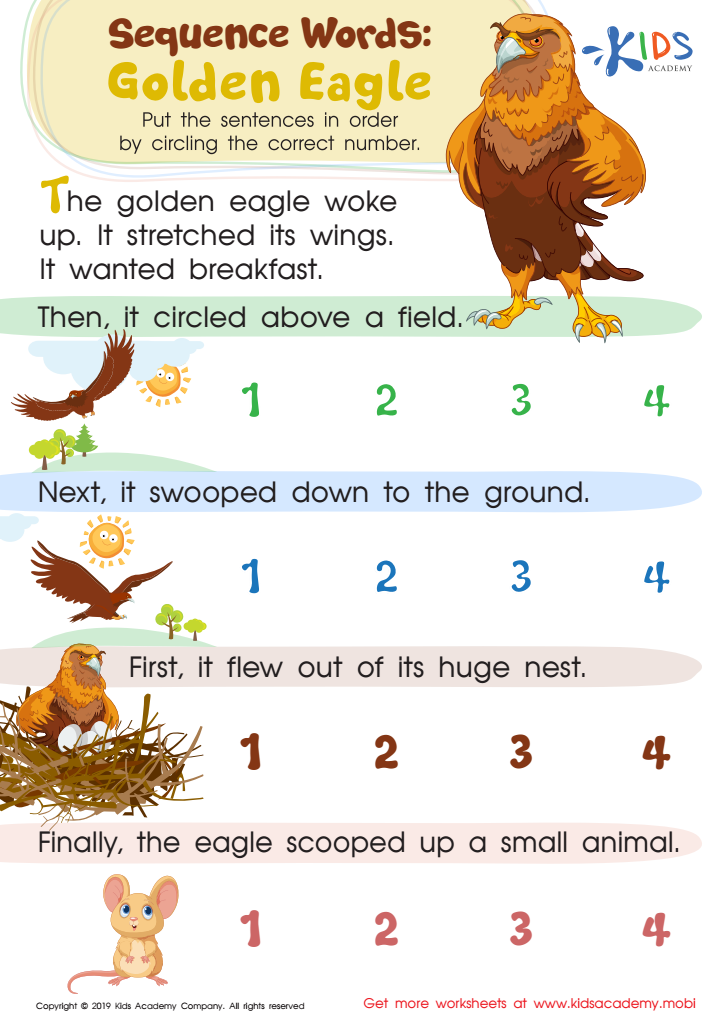

Sequence Word Eagle Worksheet
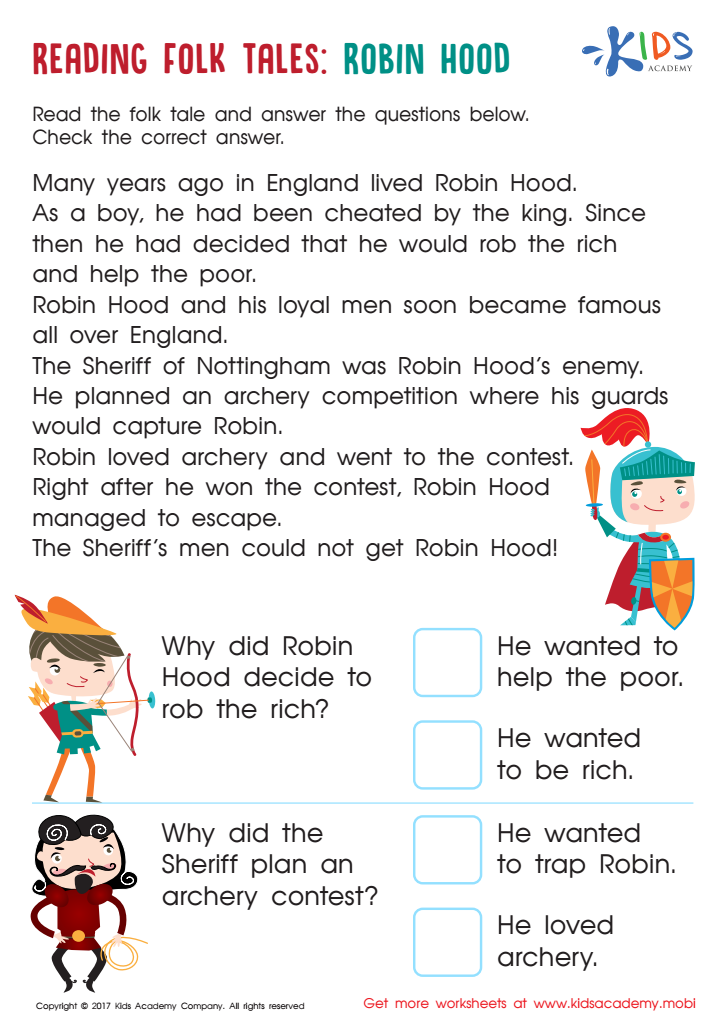

Robin Hood Folktale Worksheet
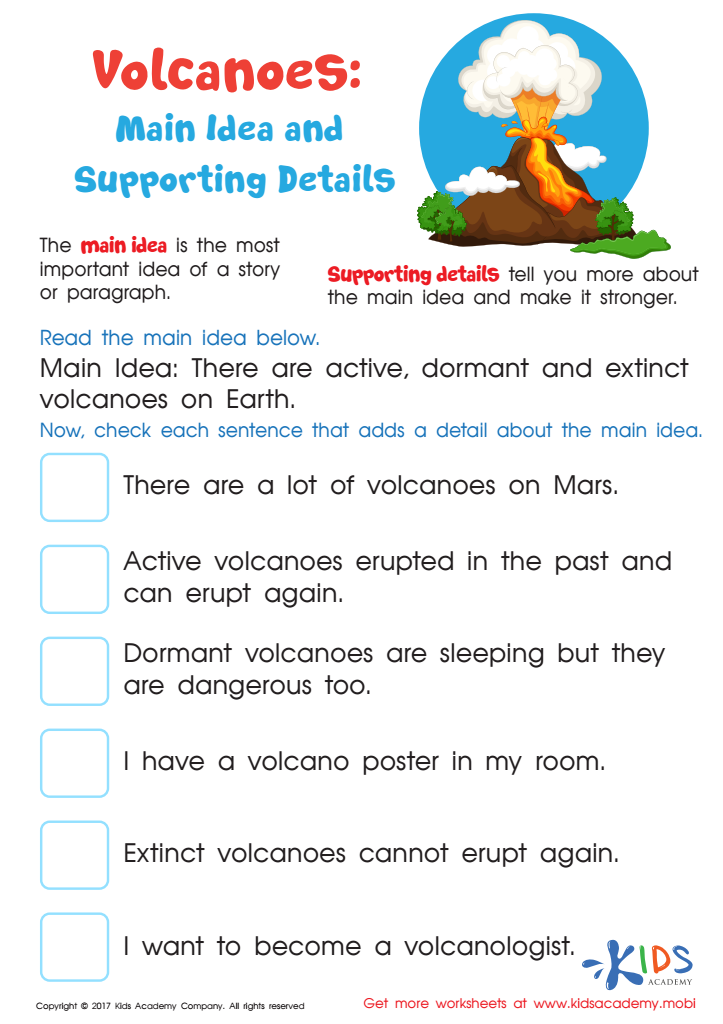

Volcano Facts Worksheet
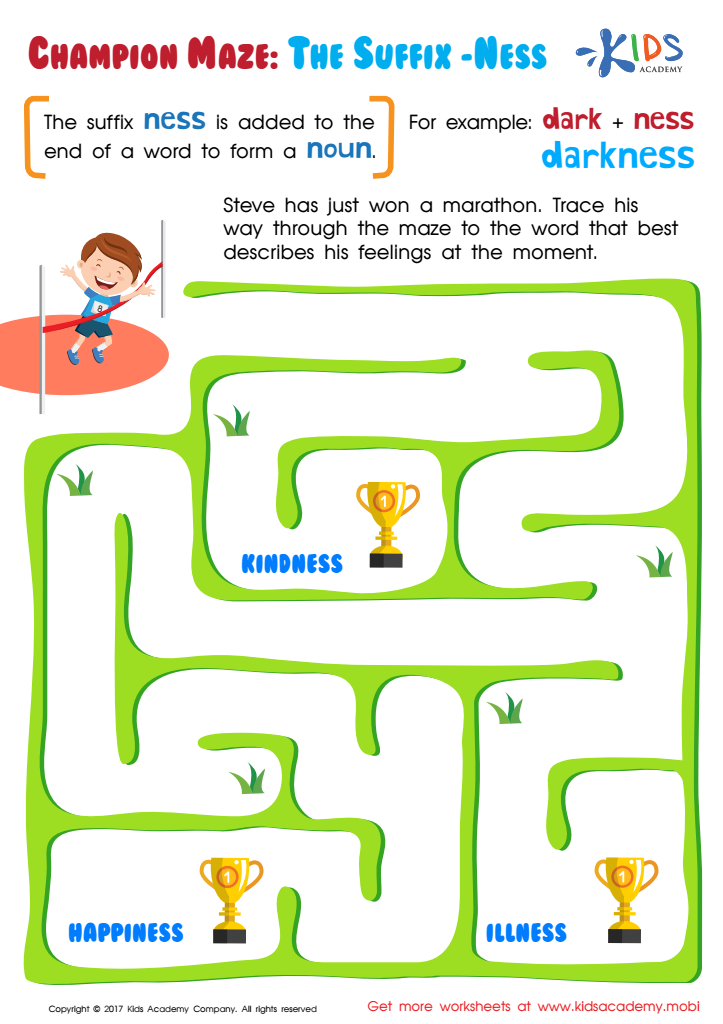

Suffix Ness Worksheet
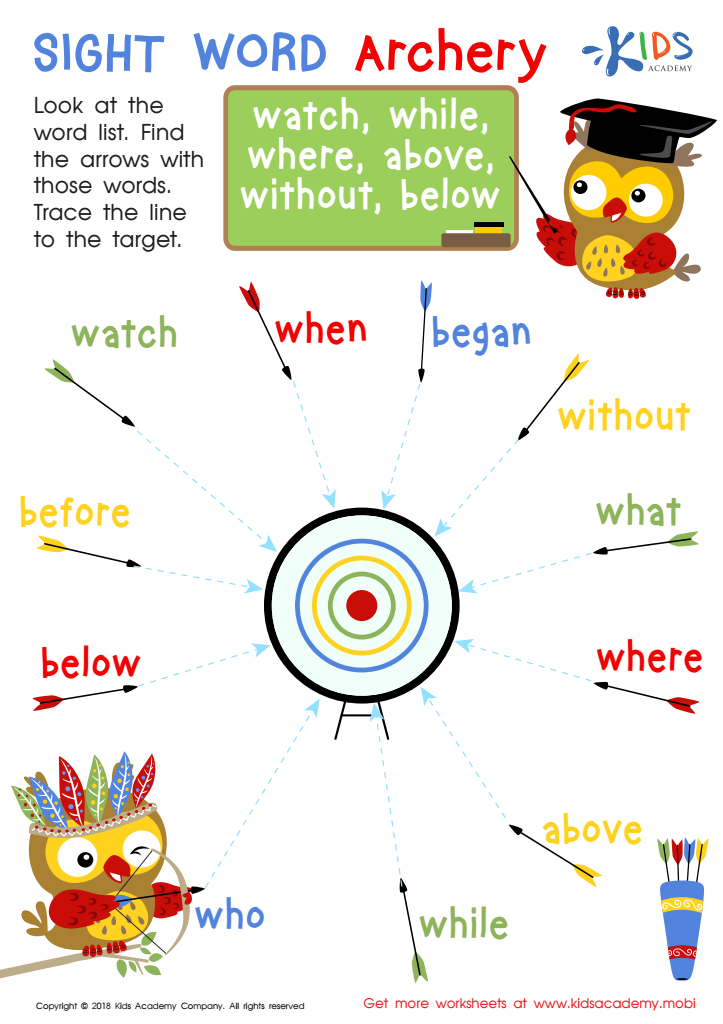

Sight Word Archery Worksheet
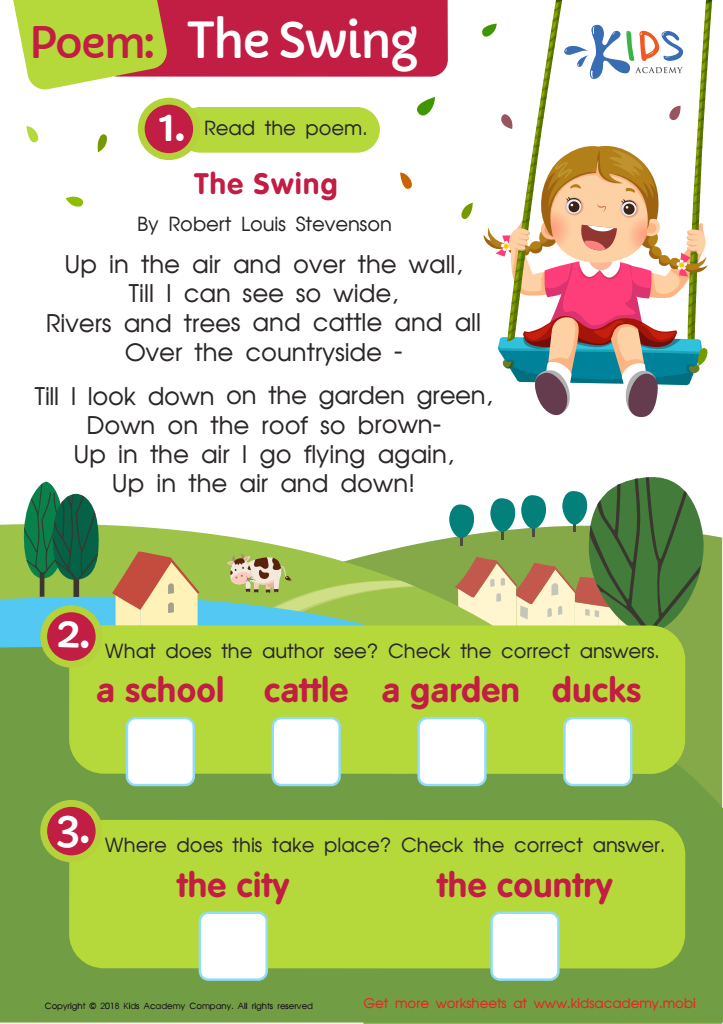

Poem: The Swing Worksheet
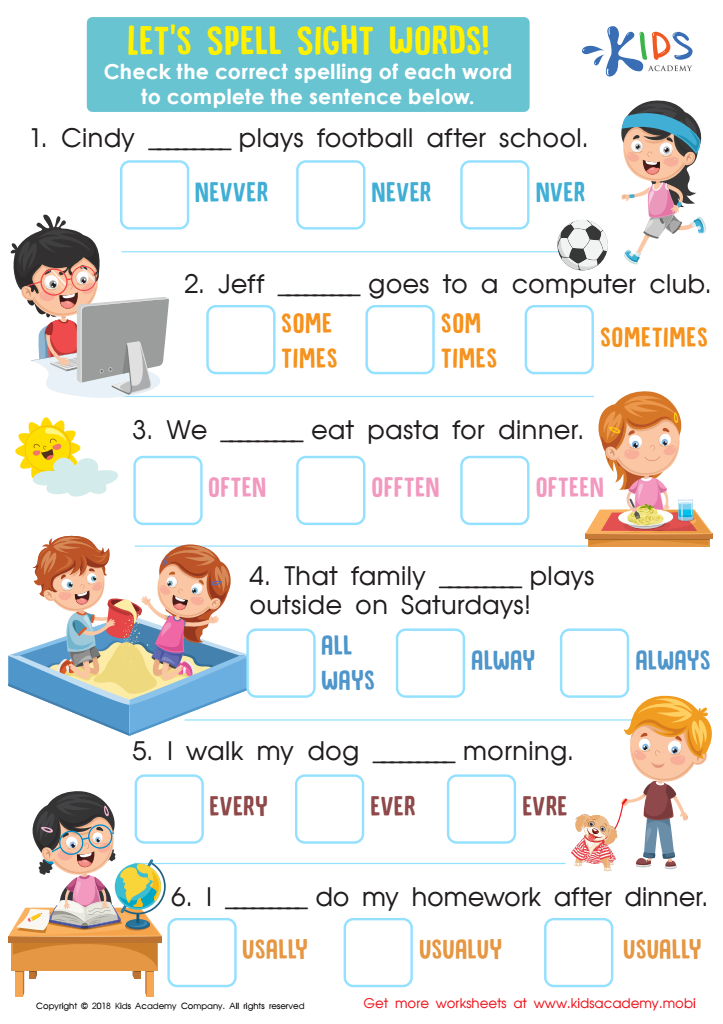

Let's Spell Sight Words Worksheet
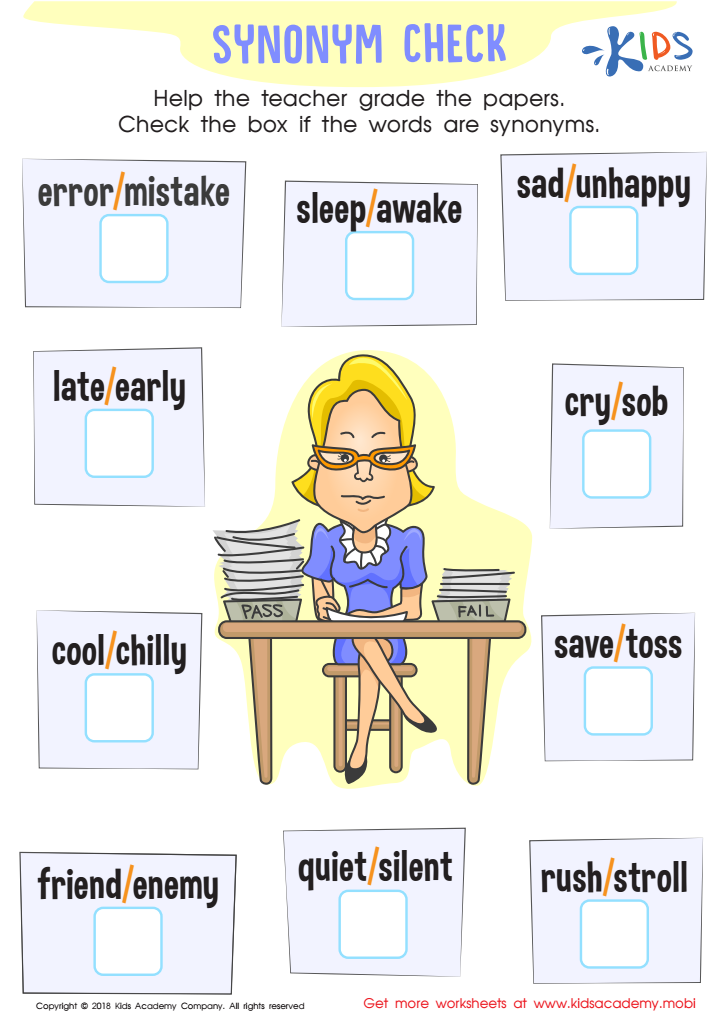

Synonym Check Worksheet
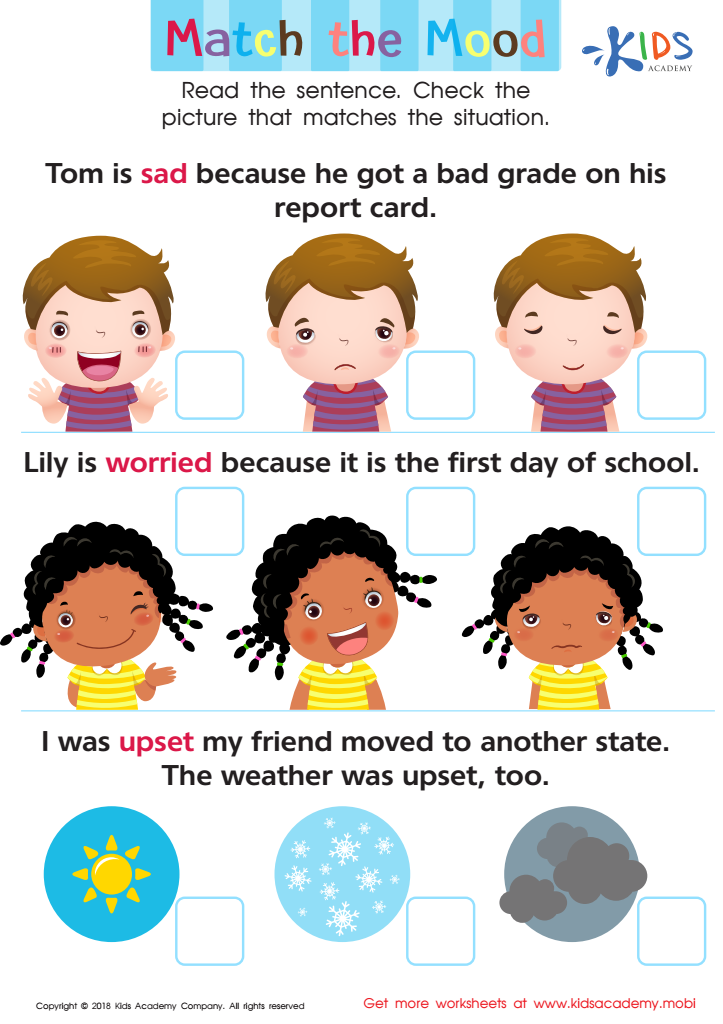

Match The Mood Worksheet
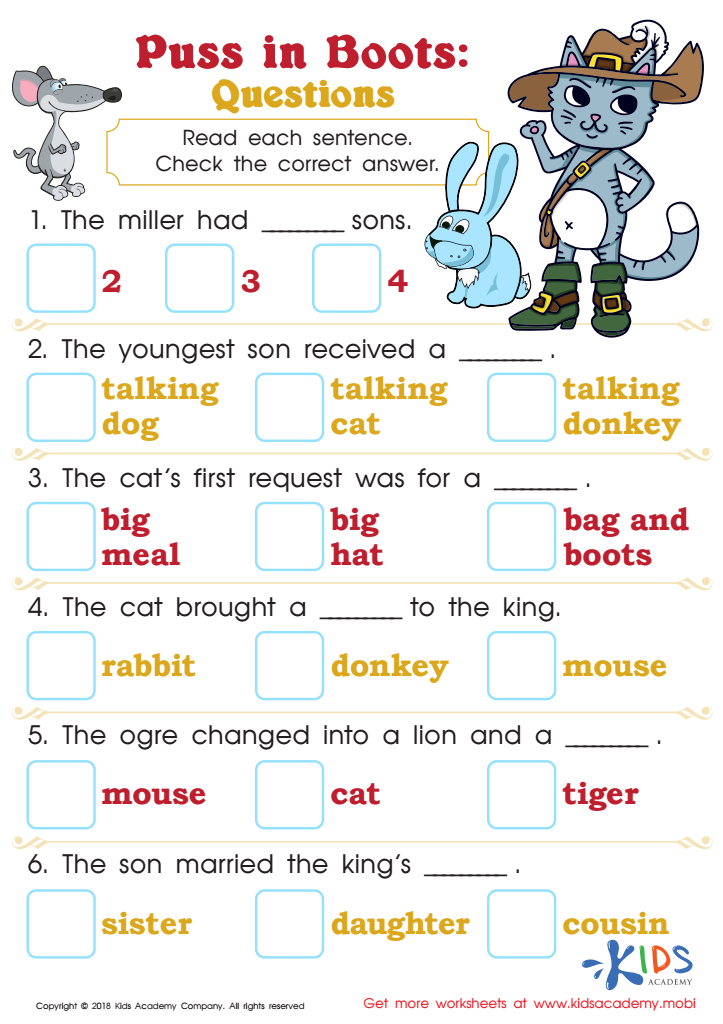

Puss in Boots: Questions Worksheet
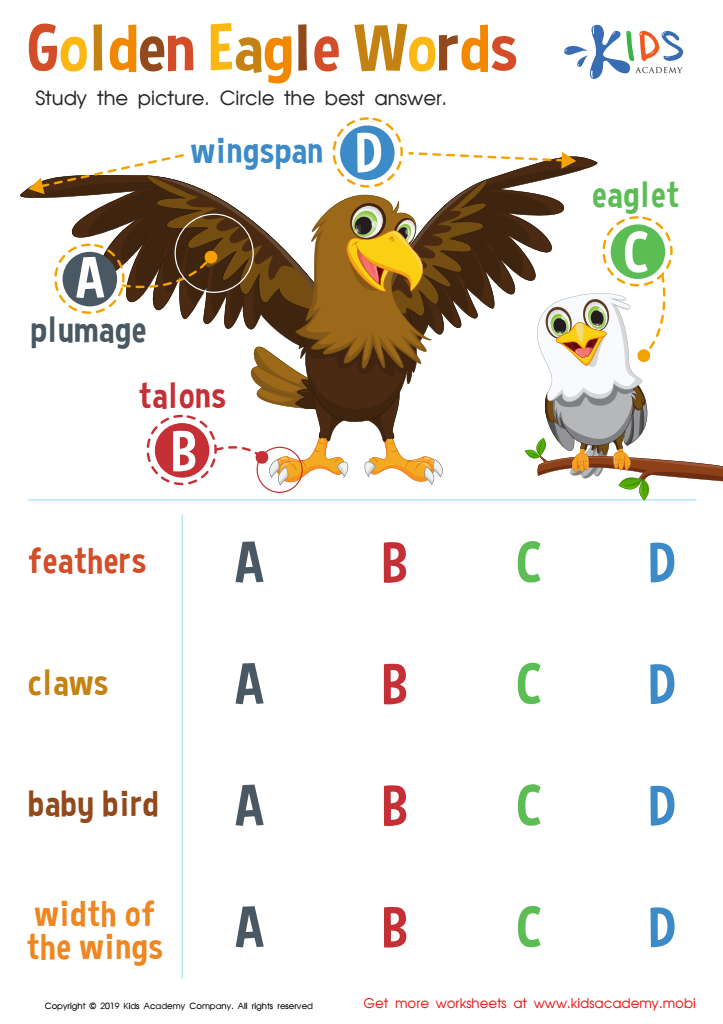

Golden Eagle Words Worksheet
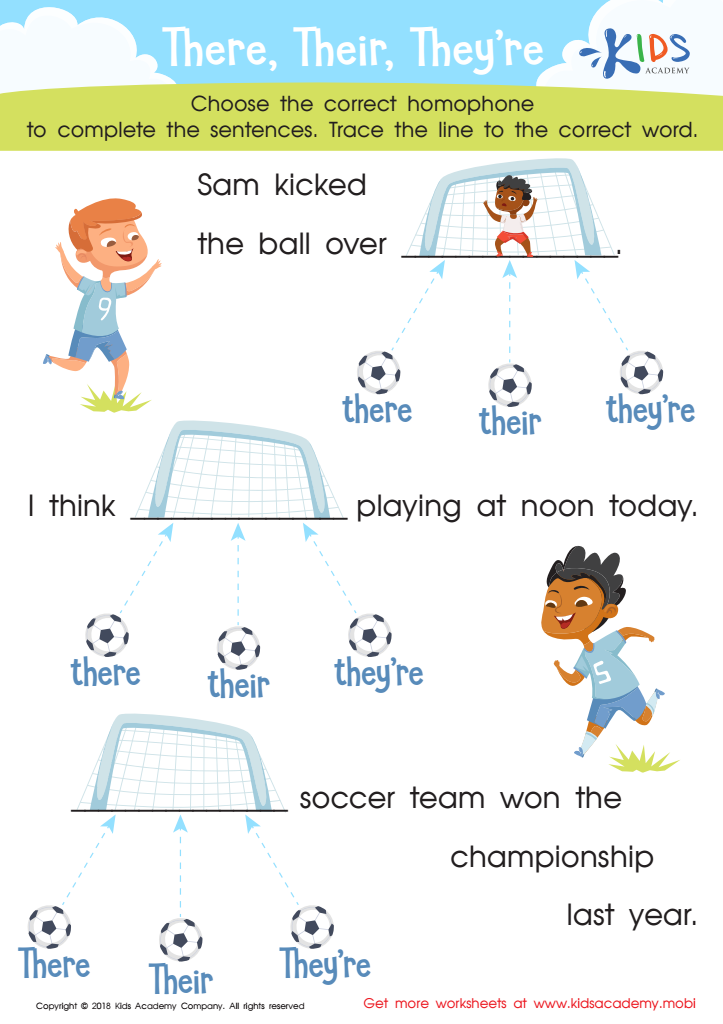

There, Their, They're Worksheet
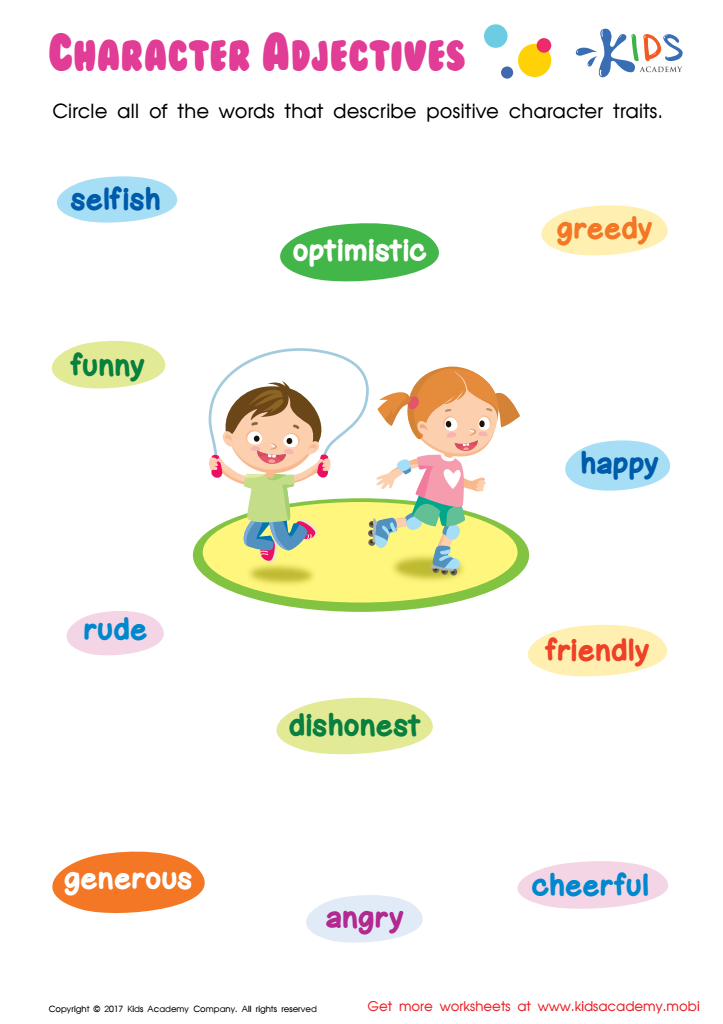

Character Adjectives Worksheet
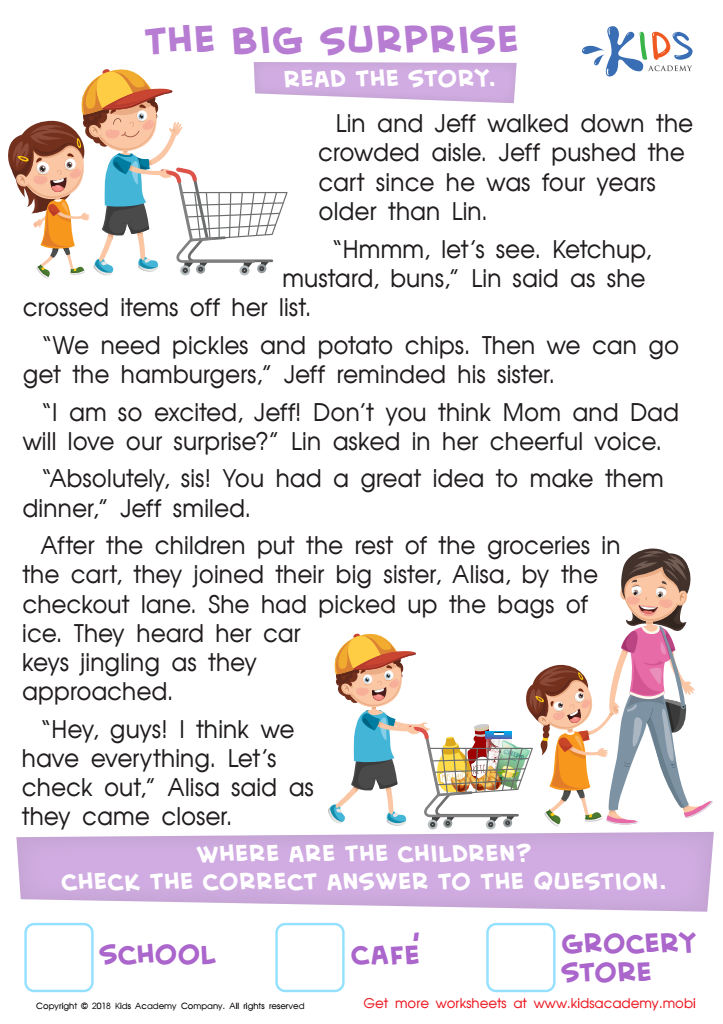

The Big Surprise Worksheet
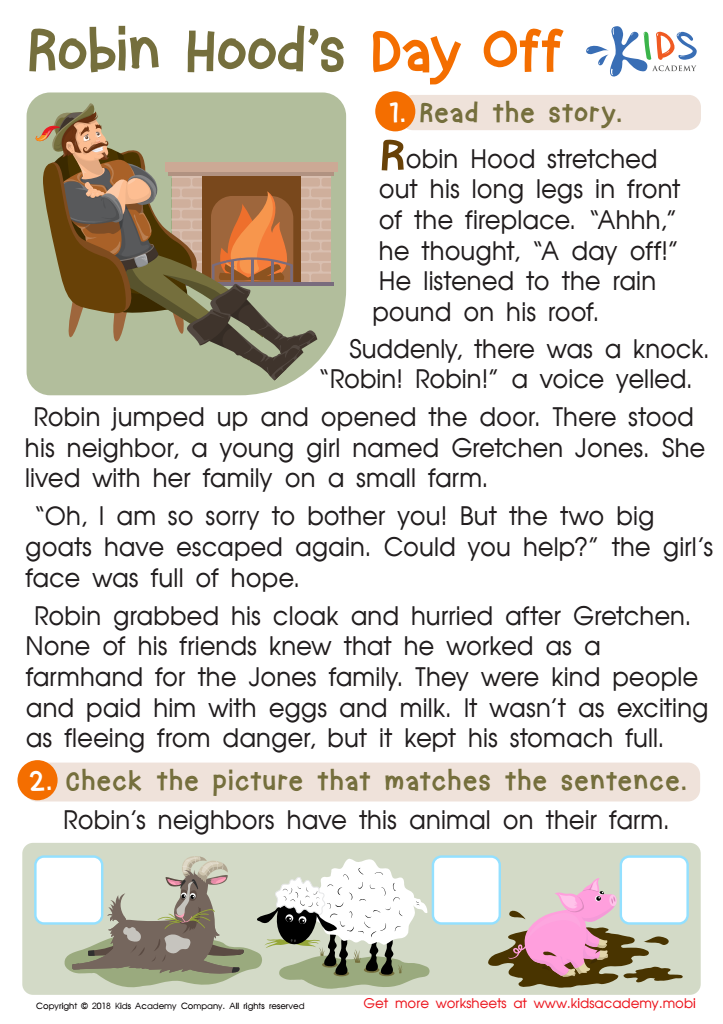

Robin Hood's Day Off Worksheet
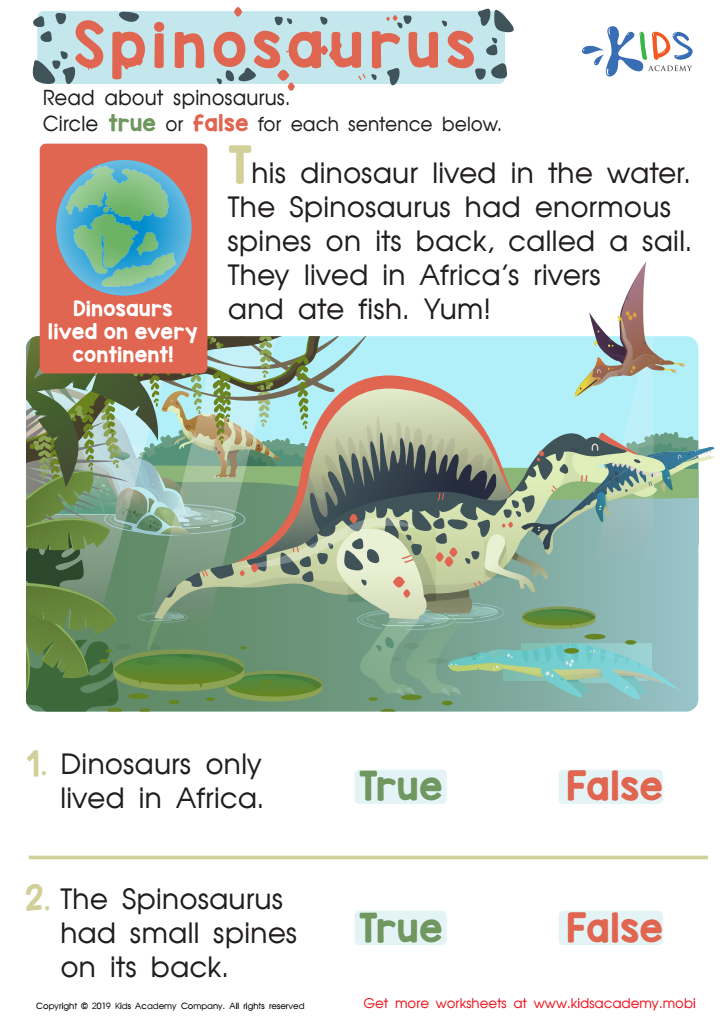

Spinosaurus Assessment Worksheet
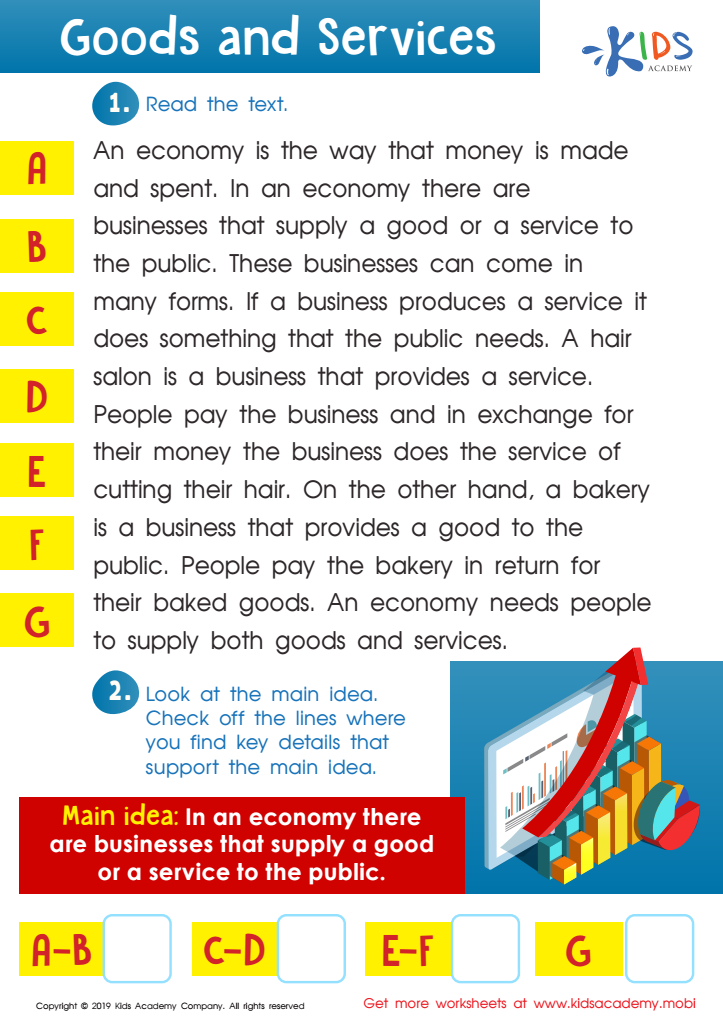

Goods and Services Worksheet
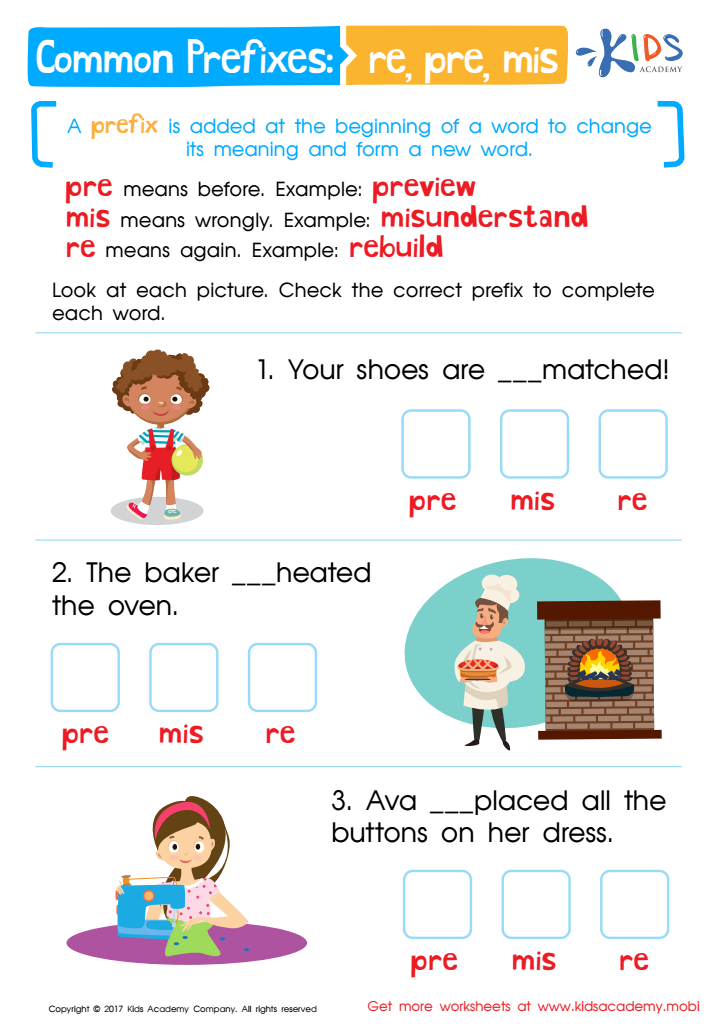

Common Prefixes Worksheet: RE, PRE, MIS
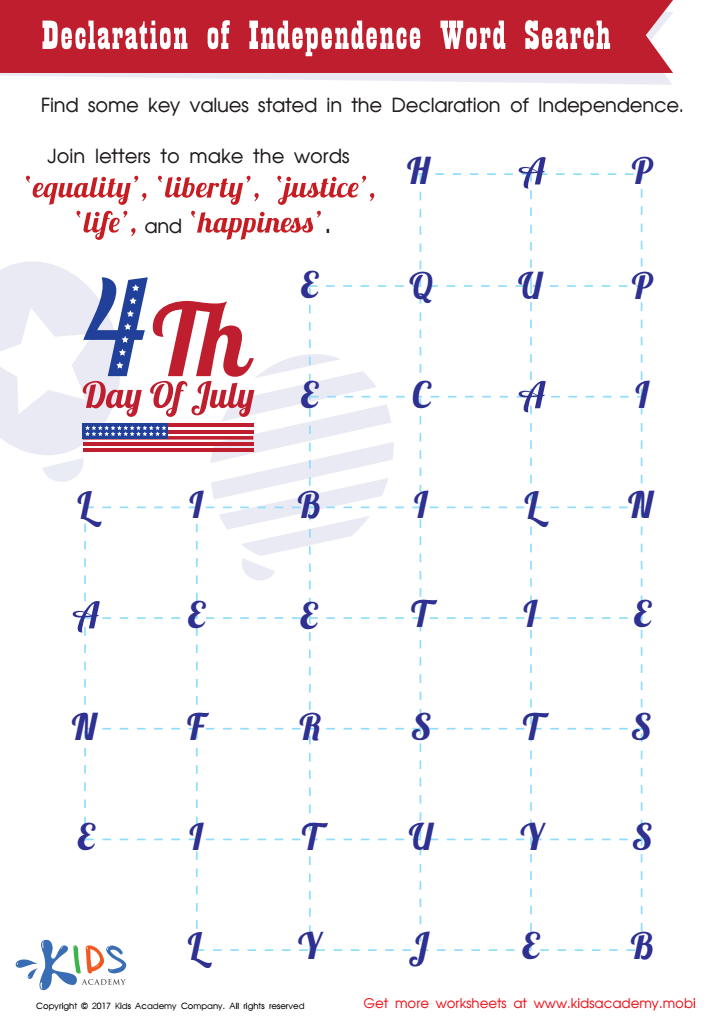

Declaration of Independence Word Search Printable
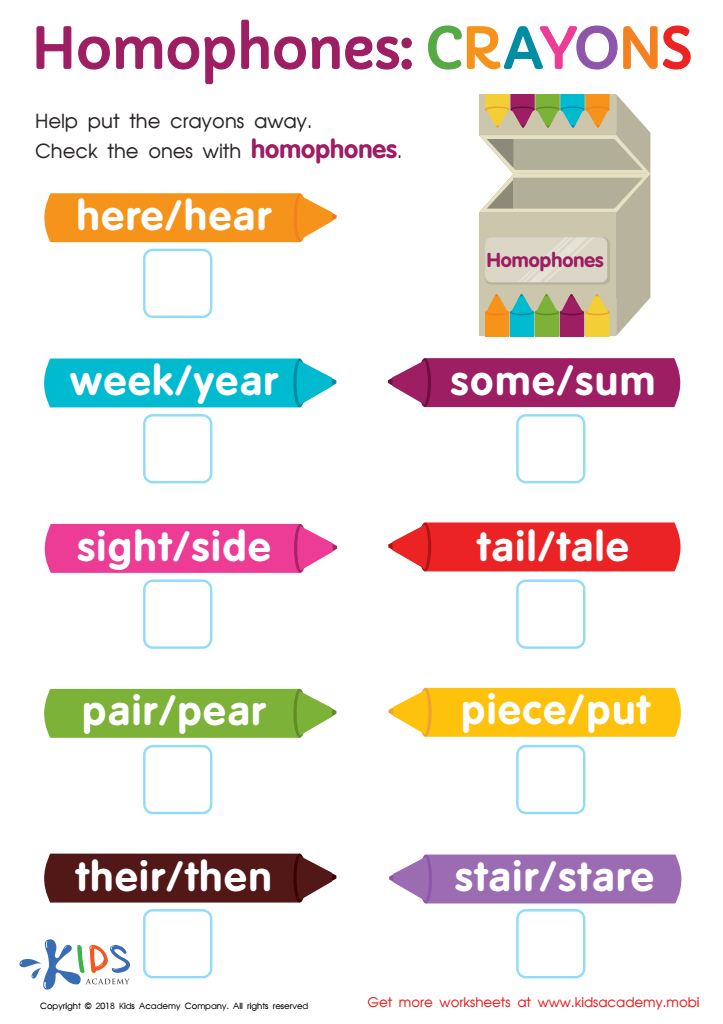

Homophones: Crayons Worksheet
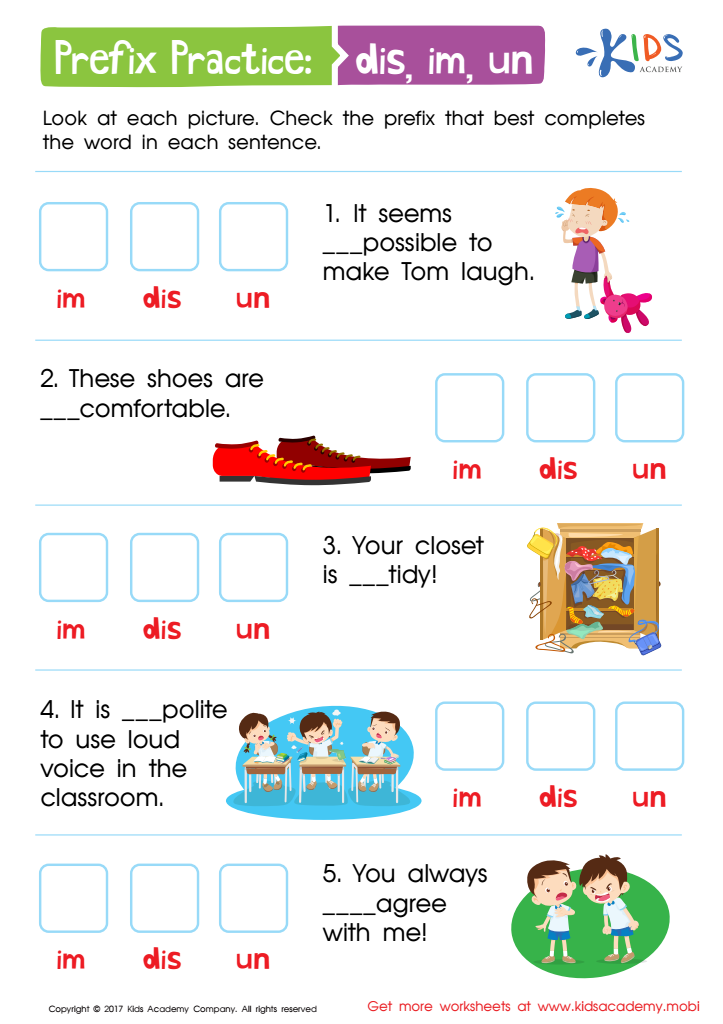

Prefix Practice Worksheet: DIS, IM, UM
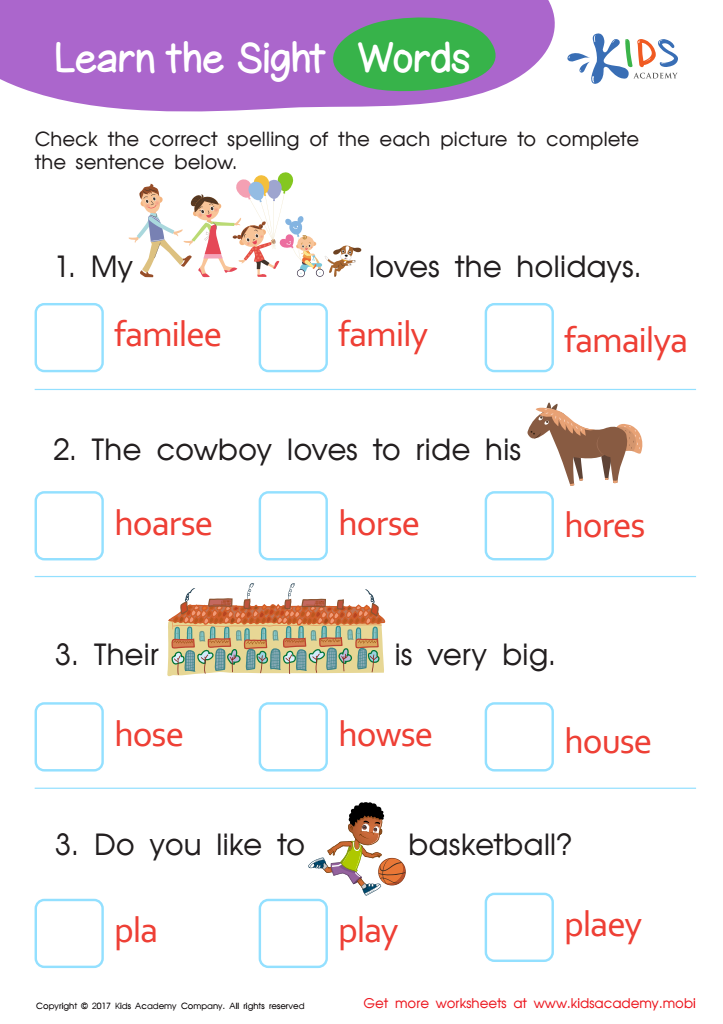

Family, Horse, House, Play Sight Words Worksheet
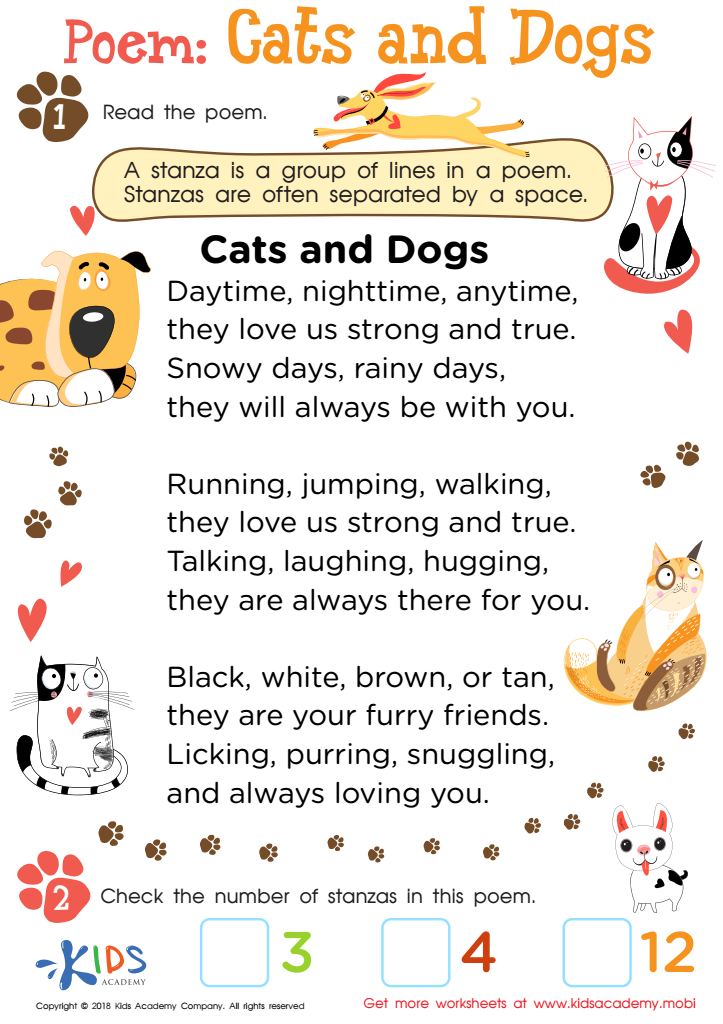

Poem: Cats and Dogs Worksheet
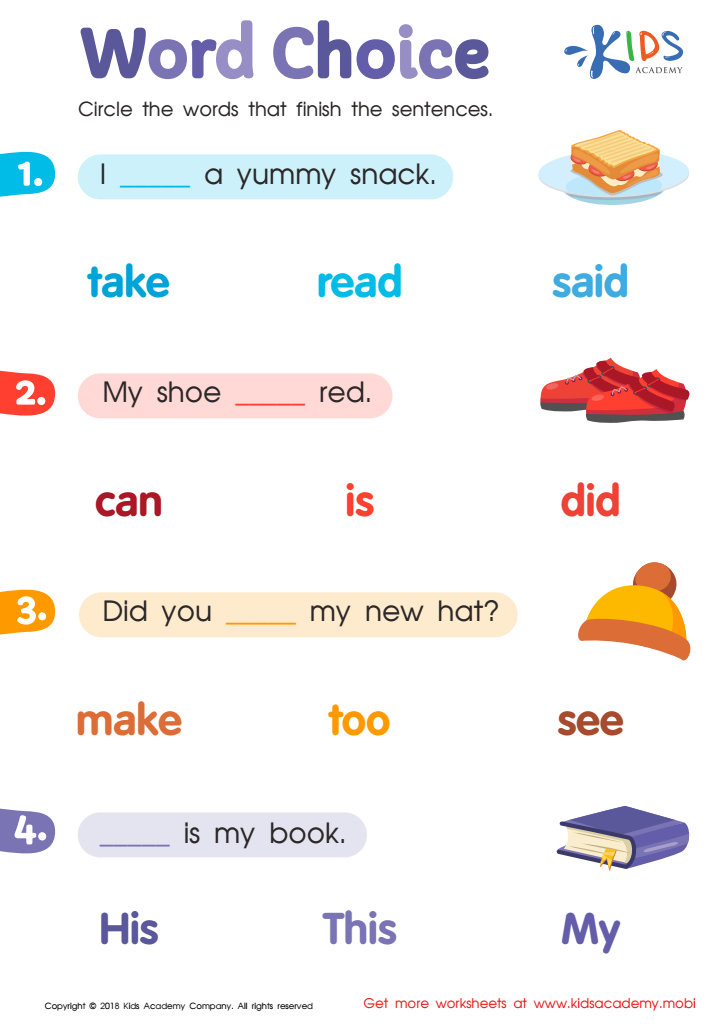

Word Choice Worksheet
Vocabulary enhancement is crucial for third-grade students as it acts as the scaffolding for their literacy development and overall academic success. At this age, children are transitioning from learning to read to reading to learn, making a robust vocabulary essential for understanding content across subjects. When parents and teachers prioritize vocabulary development, they empower students to express their ideas more clearly and confidently.
A rich vocabulary enhances reading comprehension, enabling children to grasp more complex texts and concepts, which is vital as they progress to higher grade levels. Furthermore, vocabulary abilities have been closely linked to higher performance on standardized tests, impacting future educational opportunities. By concentrating on vocabulary, educators and parents can foster critical thinking and problem-solving skills, encouraging children to engage actively with their learning.
Moreover, vocabulary development is vital for effective social communication. Children with a broader vocabulary can participate in discussions, make friends, and express themselves better, supporting their social and emotional growth. By investing time in vocabulary enhancement activities—through reading, games, and discussions—parents and teachers not only help improve students’ literacy skills but also enhance their confidence and enthusiasm for lifelong learning. Supporting vocabulary development is an investment in children’s future success.
 Assign to My Students
Assign to My Students







